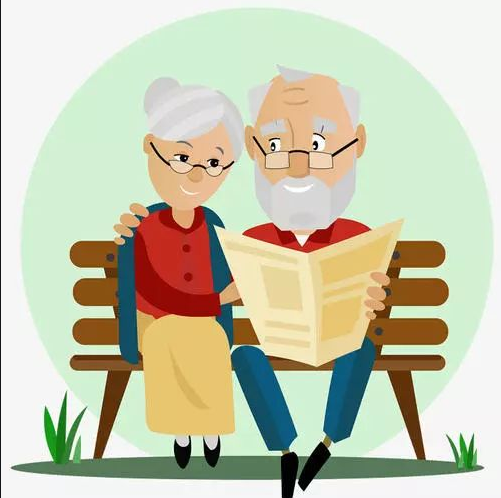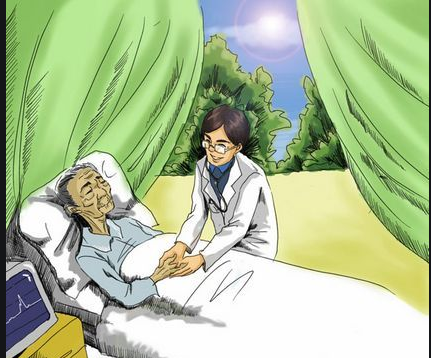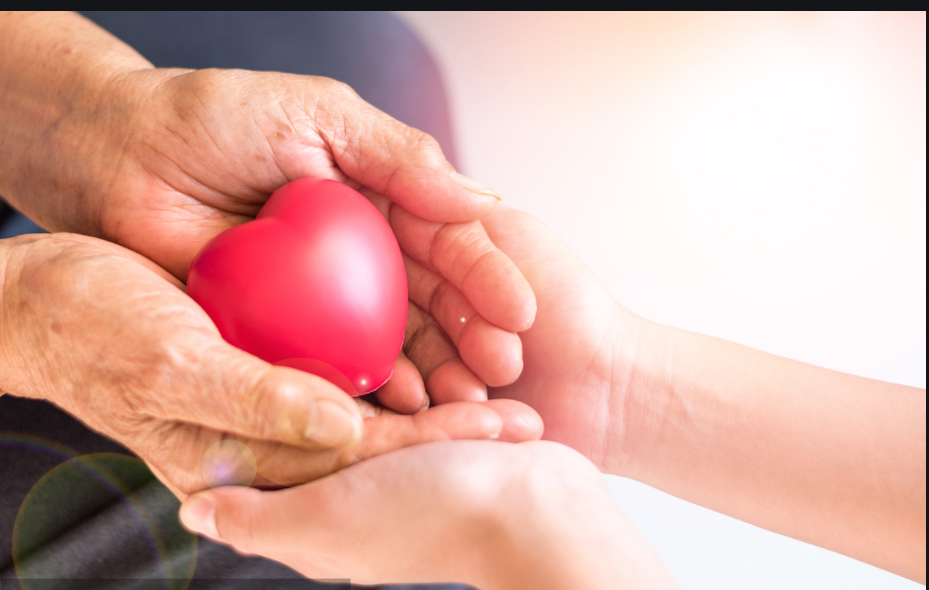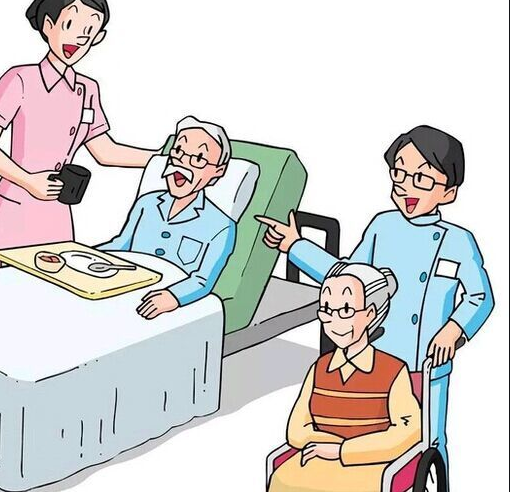Talk about hospice care
Health and longevity has always been a good blessing for the elderly, and it is also people's simple wish and eternal pursuit. Death is a heavy topic, people often avoid, taboo to talk about, and full of fear of death. Life is a trip with a limited time, and death will come eventually, in the journey of life farewell, how to have dignity, comfort, peace, unconcerned to leave? That is, the pursuit of a good death and a good death. Today, we're going to talk briefly about hospice care.

1. What is hospice?
Hospice care, also known as "hospice care";, "palliative care" and so on, is defined by the World Health Organization as the prevention and relief of physical and mental suffering through early identification, active assessment and treatment of pain and other symptoms of discomfort, including physical, psychological and spiritual problems. An effective way to improve the quality of life of patients and their families with incurable diseases. Hospice care is mainly for terminally ill patients who have lost their active therapeutic value. At present, there is no unified standard for the definition of the end of life, and the existing medical means cannot accurately predict the survival period. As long as patients have needs and wishes, they should receive hospice care, so that they can maintain an optimistic and adaptive attitude and spend the end of life with quality.

2. Is hospice Euthanasia?
Hospice is not the same as euthanasia. Euthanasia is when the patient authorizes the doctor to use drugs to help the patient die quickly. Hospice is the use of various means to relieve the patient's suffering, without hastening or delaying death, and the idea is to view death as a natural process of life. In general, hospice care is about helping terminally ill patients live as comfortable, meaningful and quality of life as possible.
 3. How is hospice implemented?
3. How is hospice implemented?
The core of hospice care is to respect and care for life. Focus on the comfort and dignity of dying patients and no longer focus on curing disease. To improve the quality of life of terminally ill patients and their families, we should try our best to control patients' pain and mental and mental problems, and help family members to actively face the disease process and grief process of terminally ill patients, deal with the funeral and carry out psychological comfort. Hospice focuses on pain intervention, nutritional support, defecation care, psychological counseling, disease notification, death education, hospice care, family grief counseling, etc.
Hospice practice is centered on end-stage patients and their families and is conducted in a multidisciplinary collaborative model. Hospice's multidisciplinary team consists of doctors, nurses, social workers, psychologists, pharmacists, dietitians, physiotherapists and volunteers who work together in their respective roles.

1. What is hospice to achieve?
In the final stage of life, curing disease and prolonging life are no longer the purpose of treatment. The service goal of hospice care is to reduce the pain of patients, maintain the dignity of patients, help patients die peacefully, and reduce the burden of bereaved people, so as to achieve the ultimate goal of "good death for the departed and good farewell for the remaining". Let the patient in the final course of life, no or little pain and trauma, clean, calm, quiet to enjoy the last beam of the sun of life, with dignity to reach the state of "superior death". What is superior death? Excellent death, also known as "dignified death" or "good death", is to let the dying person die without fear, loneliness, pain and regret in a suitable environment and time.
Hospice care can better escort the "last kilometer" of life, so that the dying can calmly complete the thank you, apology, love, and goodbye, so that the dead are peaceful, so that the living have no regrets, and so that life can end with dignity.
reference
[1] Lu Yuhan. Current situation and development direction of hospice care in China [J]. Chinese Journal of Nursing, 2017,52(6):659-664. (in Chinese)
[2] Di Shuzhen, Zhang Jing, Zhang Xueru, et al. The origin, development and prospect of hospice care [J]. Medical Research and Education,2018,35(1):7-12. (in Chinese)
[3] Chen Yongyi, Wu Xinjuan, Li Xuying, et al. The development of hospice care under the background of Healthy China construction [J]. China Nursing Administration,2019,19(6): 801-806. (in Chinese)
[4] Yang Jing, Chen Shuangqin, Qin Zhiwei, et al. Research progress of elderly hospice care in China [J]. Chinese Journal of Gerontology,20,40
(11) : 2458-2463.
[5] Luo Tao, Zhao Yue, Liu Lanqiu. The current situation and countermeasures of hospice Service System in China from the perspective of Healthy aging [J]. Chinese Journal of General Medicine, 2019,25(19):2315-2319+2324.
[6] Liu Qian, Shen Linling, Qin Yuan. Hospice in China from the perspective of the evolution of death paradigm [J]. Journal of Tsinghua University (Philosophy and Social Sciences Edition),2022,37(4):215-221+228.
About the author
 (The opinions expressed are solely those of the author. Some pictures in this article are from the Internet, if there is infringement, please contact to delete)
(The opinions expressed are solely those of the author. Some pictures in this article are from the Internet, if there is infringement, please contact to delete)

